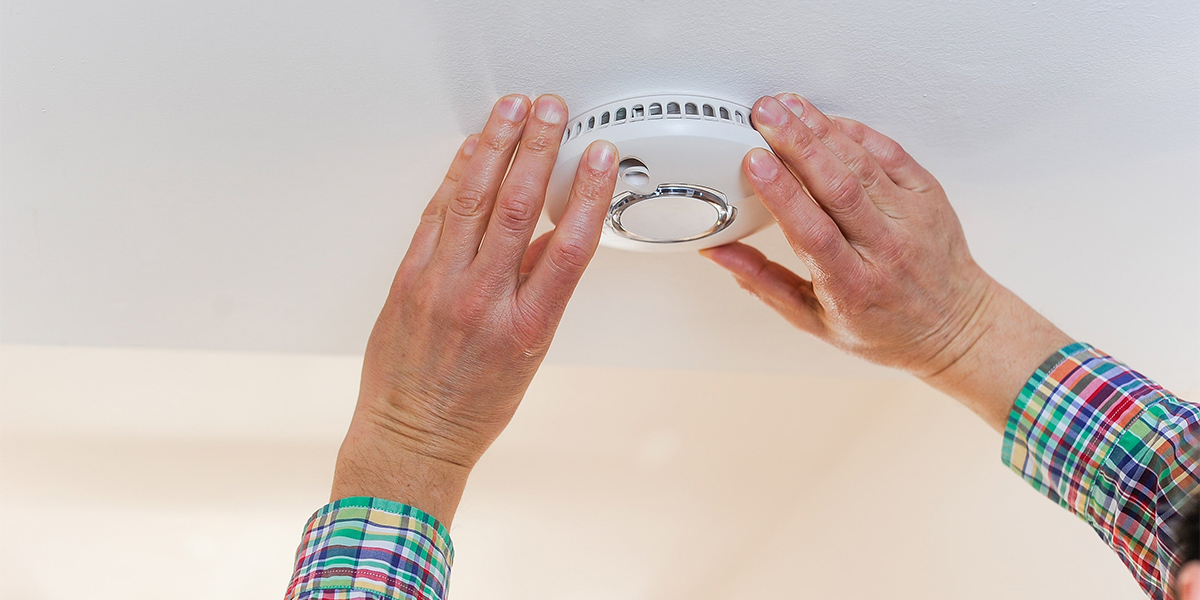The law on fire alarms is changing: what do you need to know?

Key Takeaways
- Since February 2022, all homes in Scotland must have interlinked fire alarms so that if one sounds, they all go off.
- Every home must have a smoke alarm in the living room or main room, smoke alarms in all hallways and landings, and a heat alarm in the kitchen.
- Homes with carbon-fuelled appliances must also have a carbon monoxide detector in that room, although this does not need to be linked.
- Alarms can be sealed long-life battery units or mains-wired units, with mains-wired alarms requiring installation by a qualified electrician.
- It is the responsibility of homeowners and landlords to comply, and failure to do so may affect safety, insurance and potential penalties.
In February 2022, Scotland introduced a landmark change in fire safety regulations, requiring all homes to have interlinked fire alarms. This legislation was implemented to improve household safety by ensuring that if a fire occurs in one part of the home, all alarms sound simultaneously, giving residents crucial time to respond and evacuate. These changes apply to all property types, including privately owned homes, social housing, and rental properties. Now in 2025, the rules are well-established, making this an ideal time to review the requirements and ensure that your home remains compliant with these vital safety standards.
Requirements for fire and smoke alarms
To meet the regulations, every home in Scotland must have:
- One smoke alarm installed in the living room or the room most frequently used
- One smoke alarm in every hallway and landing
- One heat alarm in the kitchen
These alarms must be ceiling-mounted and interlinked so that when one is triggered, all alarms sound.
Carbon monoxide detectors
If your home contains a carbon-fuelled appliance such as a boiler, fire, heater, or flue, a carbon monoxide detector is also required. This detector should be placed in the same room as the appliance, but it does not need to be interlinked with the fire alarms.
Types of alarms
Homeowners can choose between two types of interlinked alarms:
- Sealed long-life battery alarms: These alarms have tamper-proof batteries that last up to 10 years, making them easy to install without professional assistance
- Mains-wired alarms: These are connected to the home’s electrical supply and must be installed by a qualified electrician. While the initial cost may be lower, installation and potential redecorating costs could increase the overall expense
Purchasing and installation
Interlinked fire alarms that meet the required standards are available from various retailers. It's essential to ensure the alarms comply with these standards:
- Smoke alarms: BS EN14604:2005
- Heat alarms: BS 5446-2:2003
- Carbon monoxide detectors: British Kitemark EN 50291-1
For mains-wired alarms, professional installation by a qualified electrician is recommended to ensure safety and compliance.
Responsibilities of Homeowners and Landlords
The responsibility for compliance rests with property owners, including both homeowners and landlords. For rental properties, failure to adhere to the regulations could result in penalties or affect the property's eligibility for leasing. Compliance is also critical for maintaining valid property insurance.
Financial considerations
The cost of implementing these safety measures varies depending on the type and number of alarms required. For an average three-bedroom house, self-installed alarms may cost around £220. Professional installation or mains-wired alarms could increase costs, but the investment significantly enhances home safety.
Importance of compliance
Compliance with these fire safety regulations is essential for protecting lives and property. Interlinked alarms provide an early warning system, reducing the risk of injury or death in the event of a fire. Property owners are strongly encouraged to periodically review their fire safety measures to ensure ongoing compliance. For more detailed information, the Scottish Government's official publications on fire and smoke alarms offer comprehensive guidance. Staying informed and compliant ensures that your home remains a safe and secure environment for all occupants.
Want to know more about the rules when buying, selling or renting a property in Scotland? You can use ESPC’s free property advice service to speak to one of our property experts.
You can find out more about the new law on fire alarms in Scotland on the Scottish Government website.